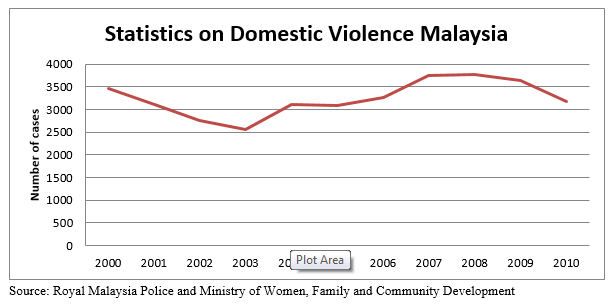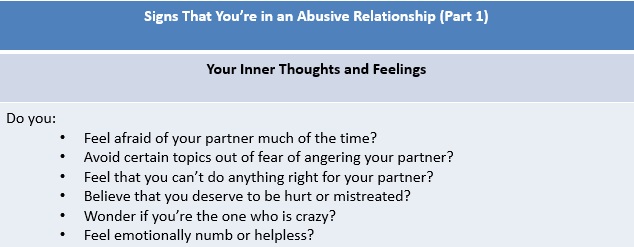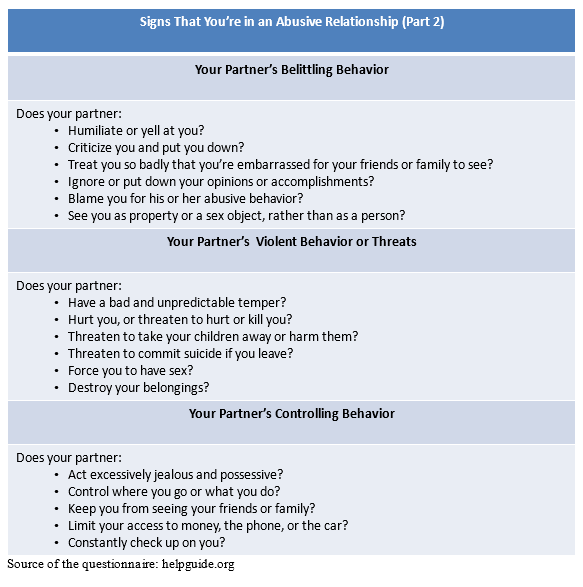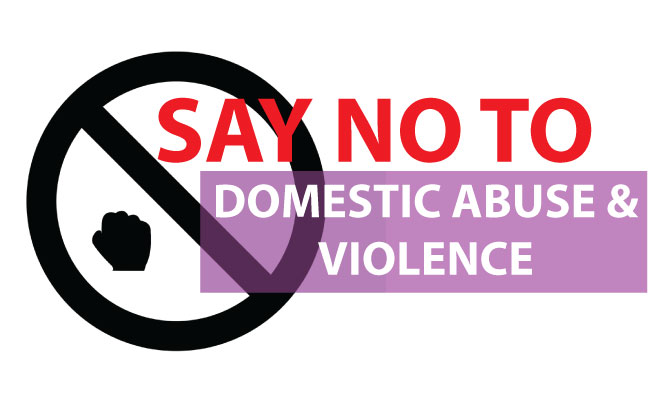“I was frightened and shocked but he was always so sorry for what he had done and promised never to hurt me again.” “I never took money out of the bank without telling him first. Not once in the fifteen years we were together.” “I never imagined he’d rape me. Twice! And then tell me he’d done nothing wrong.” “I couldn’t imagine he called me “worthless whore” in front of the kids.” “He forbade me from seeing my family and friends, I was helpless.”
Do any of the above statements apply to you or someone you know? These are the statements given by the victims of domestic violence. The statistics given by Women’s Aid Organization shows that 39% of Malaysian women have been abused by their partners. While women are more commonly victimised, men are also abused. Domestic abuse does not discriminate; it can happen to anyone, regardless of age, size, gender, social status, ethnic background or economic level. Domestic abuse, also known as spousal abuse, occurs when one person in an intimate relationship or marriage tries to dominate and control the other person. Domestic abuse that includes physical violence is called domestic violence. It can take many forms. Some types of abuse include the following: • Physical abuse is the use of physical force to inflict harm, such as hitting, kicking or biting. • Sexual abuse means any forced sexual activity. • Emotional abuse includes threats, constant criticism and put-downs. • Controlling access to money and controlling activities are other abusive behaviours.  We all know what physical abuse is. Every time when we flip through the newspaper, we see a few articles on wives or women being beaten up by their husbands or boyfriends, in some cases, the victims are even killed. However, we hardly see any news on emotional abuse. When people think of domestic abuse, they often picture battered women who have been physically assaulted. In fact, emotional abuse is also a form of domestic abuse, and the victims are protected under the Domestic Violence Act 1994. The abuser can be prosecuted under the law. Emotional abuse includes verbal insult, isolation, and intimidation, controlling behaviour and controlling access to money. Furthermore, abusers who use emotional or psychological abuse may throw in threats of physical violence or other repercussions if the victims do not do what they want. Many people think emotional abuse is insignificant and is part of our culture and custom in our male dominant society, and is often overlooked. In fact many victims suffering from emotional abuse are hurt “deep inside”. The damage is done in their mind, and it can be as damaging as physical abuse. “My husband rapes me!” Most people will think this is nonsense, as traditionally wives are expected and obliged to provide “sexual service” to their husbands when being asked. Sexual abuse involves situations when you are forced to participate in unwanted, unsafe, or degrading sexual activity. Sexual abuse is also another form of domestic abuse, and the abusers can be prosecuted under the Domestic Violence Act 1994. Nowadays, everyone is protected under the laws and no one should coerce you into doing things that you do not want. Recognizing abuse is the first step of getting help. All the domestic violence cases arise from abusive relationships. Abusive relationship is a precursor of domestic violence. In order to nip domestic violence in the bud, we all should recognise the signs of an abusive relationship. To determine whether your relationship is abusive, answer the questions below (Part 1 & 2). The more “yes” answers, the more likely it is that you’re in an abusive relationship.
We all know what physical abuse is. Every time when we flip through the newspaper, we see a few articles on wives or women being beaten up by their husbands or boyfriends, in some cases, the victims are even killed. However, we hardly see any news on emotional abuse. When people think of domestic abuse, they often picture battered women who have been physically assaulted. In fact, emotional abuse is also a form of domestic abuse, and the victims are protected under the Domestic Violence Act 1994. The abuser can be prosecuted under the law. Emotional abuse includes verbal insult, isolation, and intimidation, controlling behaviour and controlling access to money. Furthermore, abusers who use emotional or psychological abuse may throw in threats of physical violence or other repercussions if the victims do not do what they want. Many people think emotional abuse is insignificant and is part of our culture and custom in our male dominant society, and is often overlooked. In fact many victims suffering from emotional abuse are hurt “deep inside”. The damage is done in their mind, and it can be as damaging as physical abuse. “My husband rapes me!” Most people will think this is nonsense, as traditionally wives are expected and obliged to provide “sexual service” to their husbands when being asked. Sexual abuse involves situations when you are forced to participate in unwanted, unsafe, or degrading sexual activity. Sexual abuse is also another form of domestic abuse, and the abusers can be prosecuted under the Domestic Violence Act 1994. Nowadays, everyone is protected under the laws and no one should coerce you into doing things that you do not want. Recognizing abuse is the first step of getting help. All the domestic violence cases arise from abusive relationships. Abusive relationship is a precursor of domestic violence. In order to nip domestic violence in the bud, we all should recognise the signs of an abusive relationship. To determine whether your relationship is abusive, answer the questions below (Part 1 & 2). The more “yes” answers, the more likely it is that you’re in an abusive relationship. 
 If you find yourself in an abusive relationship, you have to seek help immediately to prevent worse situations from happening. Marital counselling and family therapy could help to rectify the abusive relationship. Resources for getting help: A) Please call 999 if you need immediate assistance or have already been hurt. B) If you need help or a safe place to stay, please contact the following NGOs. 1. All Women’s Action Society (AWAM) Tel: 60-3-79570221 Fax: 60-3-79573312 E-mail: [email protected] 2. Association of Women Lawyers (AWL) Tel: 60-3-2984314 Fax: 60-3-2987205 3. Women’s Aid Organisation (WAO) Tel: 60-3-79563488 Fax: 60-3-795632373 E-mail: [email protected] 4. Women’s Crisis Centre (WCC) Tel: 60-4-2280342 Fax: 60-4-2285784 E-mail: [email protected] Author: Dr Stanley Chan, Department of Family Medicine, International Medical University
If you find yourself in an abusive relationship, you have to seek help immediately to prevent worse situations from happening. Marital counselling and family therapy could help to rectify the abusive relationship. Resources for getting help: A) Please call 999 if you need immediate assistance or have already been hurt. B) If you need help or a safe place to stay, please contact the following NGOs. 1. All Women’s Action Society (AWAM) Tel: 60-3-79570221 Fax: 60-3-79573312 E-mail: [email protected] 2. Association of Women Lawyers (AWL) Tel: 60-3-2984314 Fax: 60-3-2987205 3. Women’s Aid Organisation (WAO) Tel: 60-3-79563488 Fax: 60-3-795632373 E-mail: [email protected] 4. Women’s Crisis Centre (WCC) Tel: 60-4-2280342 Fax: 60-4-2285784 E-mail: [email protected] Author: Dr Stanley Chan, Department of Family Medicine, International Medical University









